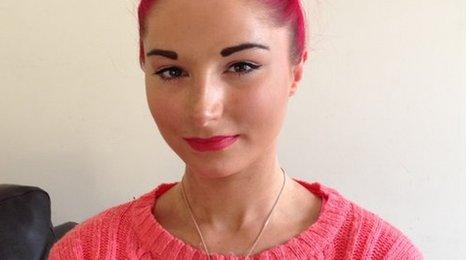Welsh government funds drug testing service for public
- Published
See how legal highs are tested at the Wedinos Project
Wales has become the first part of the UK to run a government-funded drug testing service.
The Wedinos project, run by Public Health Wales, was set up to tackle the increase in new psychoactive substances, or legal highs.
It is designed to identify what chemicals are in circulation in Wales and use the information to reduce harm.
Critics say it is a waste of money and could be open to abuse from drug dealers.
Samples are sent to the Wedinos laboratory in Cardiff anonymously and the test results posted online, identified by a reference number.
All Wedinos requires is a postcode, meaning the substance is not traced back to the user, regardless of whether it contains a legal or illegal drug.
The service is also open to the public.
Welsh Health Minister Mark Drakeford, who signs off the £100,000 a year funding, says the service is vital to protect people.
"It's essential intelligence for our health workers, for our substance misuse workers, for the police, for young people and their families. By providing timely and accurate information this service can save lives."
Mr Drakeford's Conservative opposite, Darren Millar, is sceptical.
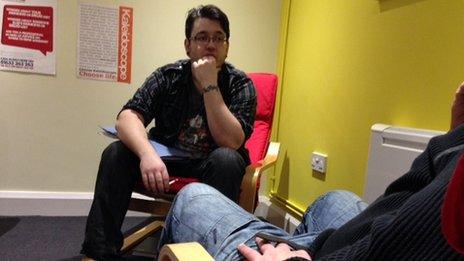
Dan Rowley works for the Kaleidoscope Project in Newport
He said: "The Welsh NHS is still struggling to cope with the legacy of record-breaking cuts imposed by the Welsh Labour government, yet the NHS has the resources to test addictive and harmful drugs for possible addicts for free.
"It is obviously open to abuse by dangerous criminals peddling harmful substances in order to fund other crime."
The Welsh government says there are safeguards in place to stop any potential criminality from happening.
The service is mainly aimed at health and substance misuse workers but is available to anybody in Wales.
People who use the service are warned not to send substances they know are illegal through the postal system.
The police also send substances they cannot identify to Wedinos, which stands for Welsh Emerging Drugs & Identification of Novel Substances.
The phrase 'Wedi Nos' also means 'after dark' in Welsh.
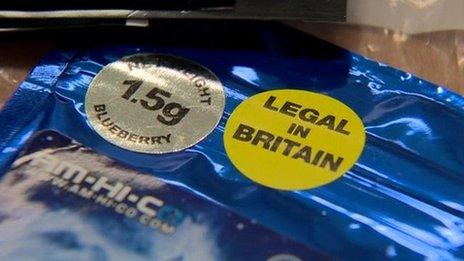
Since launching in October 2013, around 150 samples have been sent in, revealing at least 85 substances from caffeine to cocaine.
Legal highs have proved tricky for authorities across the UK as their use and production has increased over the past few years.
Often, once a substance is banned, manufacturers can change the chemical codes to make a similar product that becomes technically legal again.
A Welsh government spokesman rejected the claim and said the scheme could save lives
Dan Rowley is a drugs worker with the Kaleidoscope project in Newport, a service which helps support people with drug and alcohol problems.
He's says he has used the service several times on behalf of his clients.
"There was one (legal high) called Ivory Dove and Ivory Dove Ultra that people had unexpected experiences with - headaches, hand tremors and seizures.
"I thought it was pretty important to find out what was in it.
"It helps us because we can treat the symptoms better if we know it's definitely a stimulant that this person had been taking.
"For example, there are different therapeutic interventions for a user of a stimulant rather than a user of a depressant."
The UK government says it is carrying out a review of new psychoactive substances to work out a more effective way of dealing with the growth in production and usage.
Follow @BBCNewsbeat, external on Twitter
- Published31 January 2014
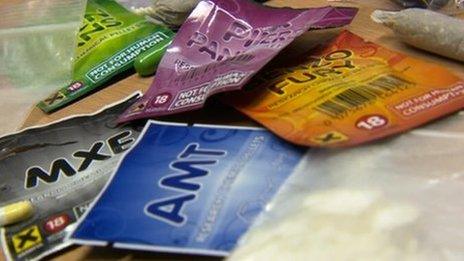
- Published31 January 2014
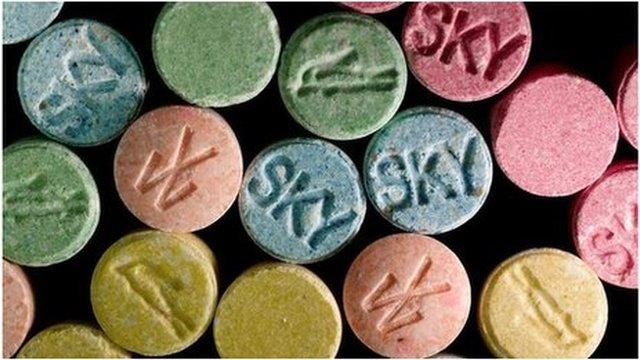
- Published29 May 2013
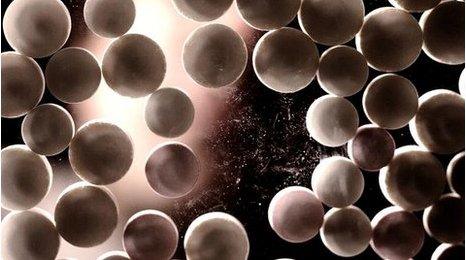
- Published3 July 2013
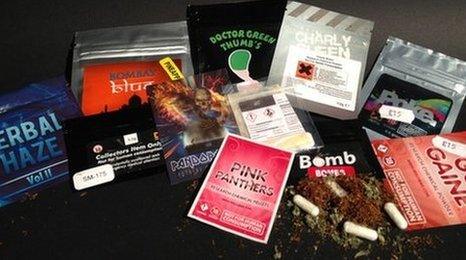
- Published3 July 2013
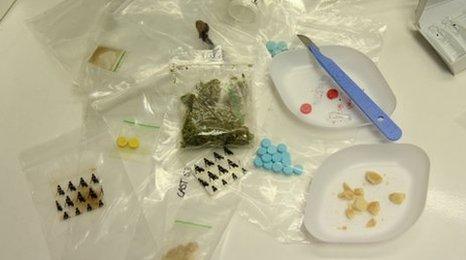
- Published3 July 2013
